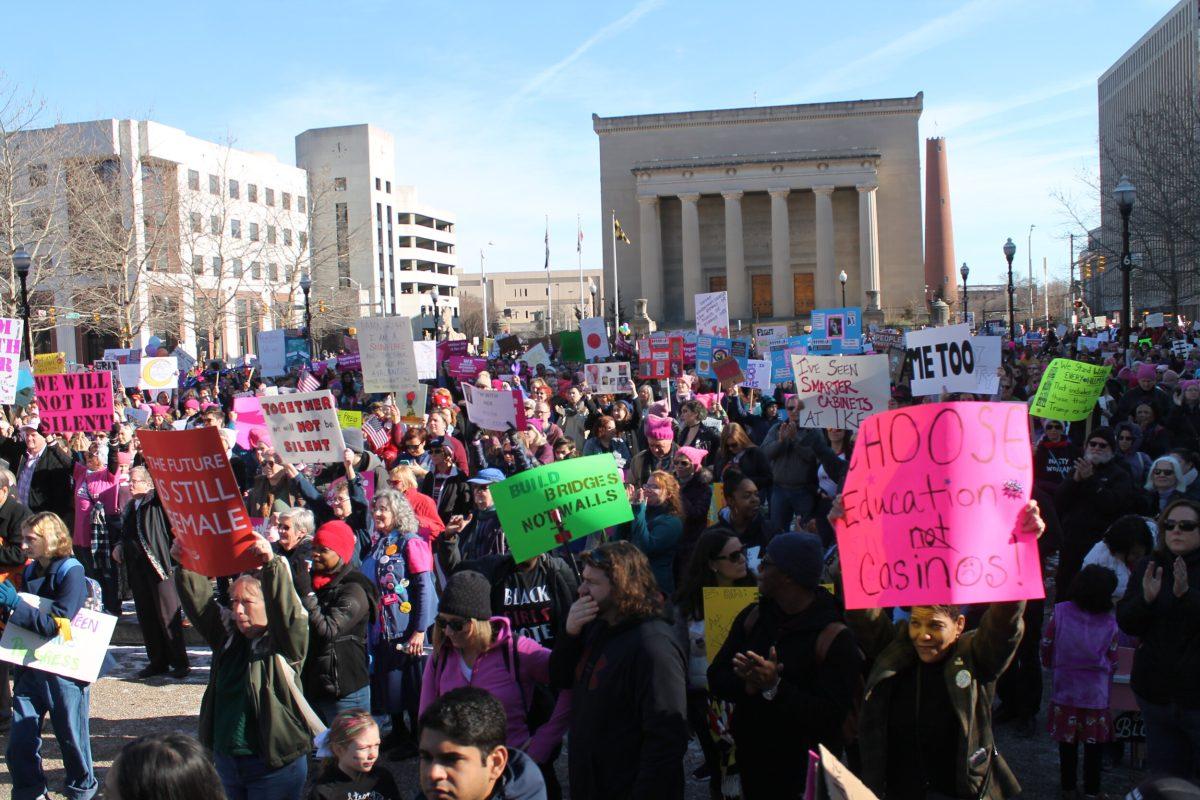On January 18th, the Women’s March Foundation put on its fourth annual Women’s March protest that took place in Los Angeles, CA. An event that has brought together thousands of protestors to walk alongside one another in pursuit of subverting systems of oppression through nonviolent resistance and building inclusive structures guided by courage, strength, and admiration. Though the march has been recognized as such by most of its demonstrators, the recent controversial decision made by its organizers to not include the international activist movement, Black Lives Matter, has brought people to re-evaluate and criticize the intentions and goals of the Women’s March Foundation.
As described on the Women’s March 2017 Annual Report, Women’s March Inc. was established after the 2017 Women’s March, “to carry out the mission of the march through programmatic support for the decentralized network of grassroots leaders, investment in building women’s political power and rapid response actions to human rights crisis created by the Trump administration.” The 2017 Women’s March in Washington has been recorded as the largest single-day protests in United States history. Their large presence and coverage by the media quickly made an impact and became favored by people from all over the nation as every state in the country participated by coordinating a protest in their main cities. The report states that there was a total of 653 marches in the United States alone, with roughly a participation rate of three million total marchers in the country.
Habiting a majority of these marchers was the protest that happened in Los Angeles earlier this month that was organized by the Women’s March Foundation, a women-led, non-profit organization. WMF shares the same mission and values as the Women’s March Inc. stating that they too want to, “work towards the vision of shared humanity and equality for all, regardless of race, religion, gender identity or sexuality.” Although, through some of their decision making for who would get the chance to speak at their event, it has created controversy specifically within the African American community.
Three days before the event took place, Black Lives Matter stated on Twitter that, “This is the first year that there will be no Black Lives Matter presence at @wmnsmarchla. Organizers did not reach out or respond to our request for inclusion #WhiteWomensMarch.” BLM co-founder, Melina Abdullah, added to the conversation and expressed that, “The exclusion of Black Lives Matter in Los Angeles is shameful,” she said. “It seems that the Women’s March really wants to practice what we call celebrity style leadership.”
These claims have sparked the Women’s March Foundation to respond with a statement, “While we support Black Lives Matter and its work, since this an important election year, our speaking program for Women’s March LA 2020 is focused on highlighting organizations and individuals who have a mission to register and encourage people to vote,” the foundation said.
Although the importance of voting should be prioritized and emphasized, and if the goal is to get as many people on board as possible, then the act of not including every group of people is in actuality a disservice to the cause. The BLM represents a group that makes up 13.4% of our total population, according to the 2019 United States Census Bureau, making up nearly 439 billion individuals that have the right to vote and can make a large influence on the outcomes of the elections. For this influence to take place most effectively, representation must be given in all forms possible, especially as a way to empower a minority that has endured centuries of oppression, mistreatment, and underrepresentation on all platforms.
When asked about the situation that took place, Sonoma State’s Black Student Union’s President, Gregory Thomas said, “The Women’s March’s exclusion of the Black Lives Matter movement highlights the anti-blackness and racism that exists within (the origins of) white feminism. This is not a slam towards cis-gendered white women and their fight against the patriarchy, but a critique on the feminism that excludes black women from the discussion when addressing sexism,” he adds that, “The biases in our society against black women and black trans woman are ubiquitous in western media, and needs to be addressed within organizations who claim to represent all woman.” Additionally, Gregory comments that although the actions taken by the Women’s March Foundation have been disheartening, he continues to stay motivated towards promoting equality and diversity on our college campus.



































